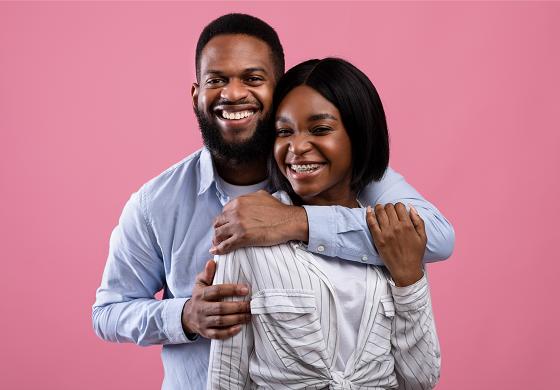
How to know you’re ‘couple goals’
If you live on social media, you are likely to have come across hashtags such as #CoupleGoals or #BaeGoals. Or you may be the one using those hashtags on your own posts.
It’s easy to spot them. Whenever you are on social media, they will be there. Hands tucked in each other, staring at each other longingly, and lovingly almost as if they were literally born for each other. You don’t know how, but you find yourself typing, “Awwwww! #goals!”. Nameless and Wahu. Dj Mo and Size 8. Kevo and Caro. #Goals!
Welcome to the #CoupleGoals lifestyle.
#BaeGoals, a trend that has millions of couples posting pics of themselves on social platforms like Facebook and Instagram. It started innocently enough, but younger generations focused energy on giving the illusion of being in a happy, healthy relationship, instead of actually creating one.
It’s a trap.
Everywhere you go online, there is a fantasy world and hysterically inflated ideas of what a couple should or should not be in a relationship.
The problem with #BaeGoals is that it encourages us to take relationships at surface value without much consideration of whether the behaviors shown in the post or the unseen the mutually beneficial to both partners. Or without much consideration of what happens between couples. It stops us from actually interrogating and just assumes that the relationship is really perfect.
People would rather show you they are happy than be actually happy. We often forget that as a couple, you aren’t just one entity… you are two separate individuals with individual wants and needs.
Types of #BaeGoals:
- Surprise! BaeGoals: You know the couple who are always surprising each other with small gifts? All the time? However, there is a fine line between surprising your bae and using these ‘surprises’ to control their behavior and their friendships.
- The couple working out together: It’s perfectly fine for you to work out with your partner, and it is always a great thing that you have extra support in the gym. That is actually a healthy goal. The problem comes in when your partner starts to belittle you or make small comments about your body. If your partner is forcing you to change your appearance because they want you to be other people’s ‘goals,’ that isn’t sweet, it’s unhealthy.
- Overprotective lover: If your partner is always there, always in your space, always crowding you, it stops being cute and starts being annoying. This is a sign of insecurity and could be a potential red flag for your relationship.
- Vacationing together: Then there’s this category that is always sharing vacation pics. Mara they are in the Maasai Mara, mara at the coast, Mara in Nanyuki, Europe, the list is endless. Let the cute pics fool you, they may not really indicate the status of the relationship.
The bottom line:
The thing about #CoupleGoals it’s that it has become so misused that not only do people think possessive, jealous, and downright controlling behaviors are loving relationship goals, but people are making decisions and acting off of whether or not they fit into the #BaeGoals stereotype. Basic qualities like respect, kindness, and fairness in a relationship are not some kind of #goal but should be something not only expected but required.
Relationship goals should be taken as a loose guideline on how to share the love with your partner. Whether you have matching kitenges or not!
Over to you, what are our thoughts about #CoupleGoals?
